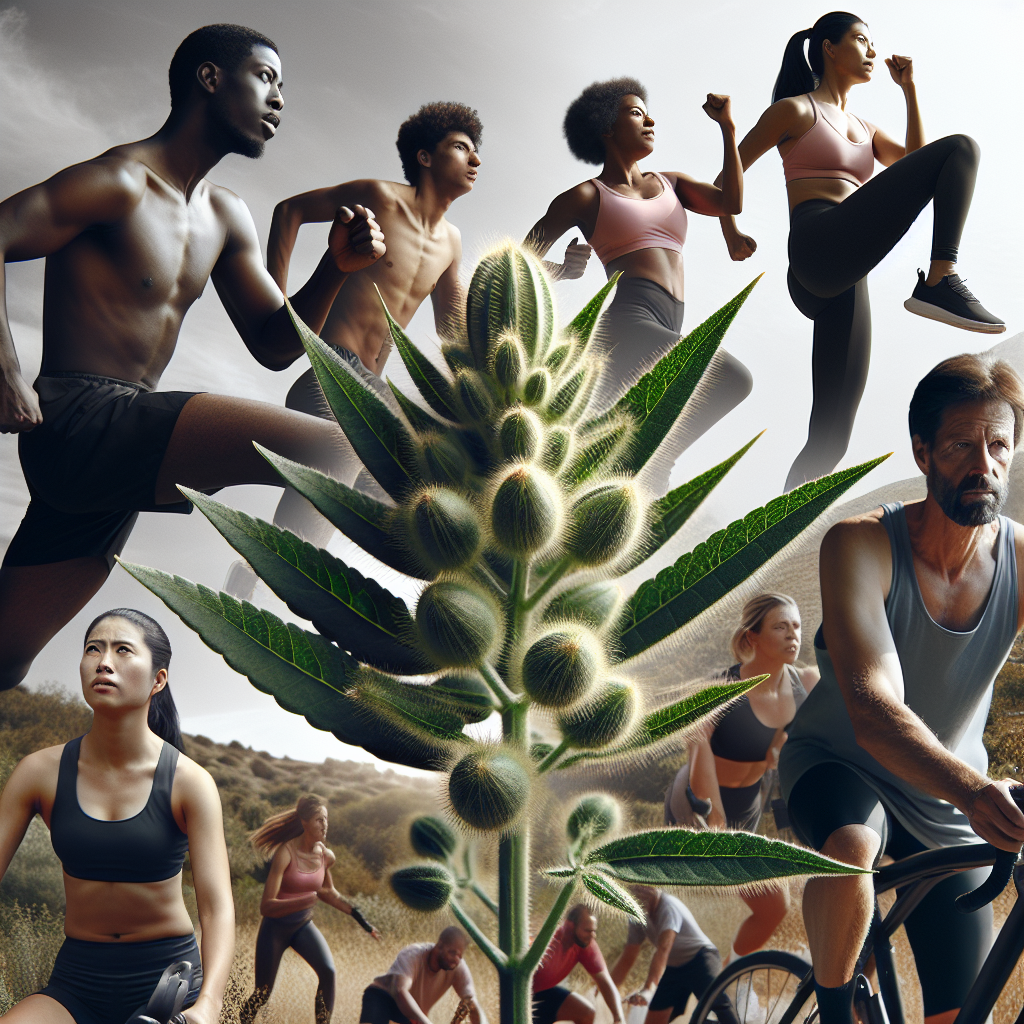-
Table of Contents
Tribulus terrestris: A Natural Partner for Athletes
Athletes are constantly seeking ways to improve their performance and gain a competitive edge. While many turn to synthetic substances and supplements, there is a growing trend towards using natural alternatives. One such natural partner for athletes is Tribulus terrestris, a plant with a long history of use in traditional medicine and now gaining popularity in the sports world. In this article, we will explore the pharmacological properties of Tribulus terrestris and its potential benefits for athletes.
The Pharmacology of Tribulus terrestris
Tribulus terrestris, also known as puncture vine, is a plant native to warm and tropical regions. It has been used in traditional medicine for centuries, particularly in Ayurveda and Chinese medicine, for its various medicinal properties. The plant contains a variety of active compounds, including saponins, flavonoids, alkaloids, and glycosides, which are responsible for its pharmacological effects.
One of the main active compounds in Tribulus terrestris is protodioscin, a steroidal saponin that has been shown to have anabolic and androgenic properties. It works by increasing the production of luteinizing hormone (LH) and testosterone, which are essential for muscle growth and strength. Additionally, Tribulus terrestris has been found to have antioxidant, anti-inflammatory, and immune-modulating effects, making it a well-rounded natural supplement for athletes.
The Benefits for Athletes
There is a growing body of research on the potential benefits of Tribulus terrestris for athletes. One study found that supplementation with Tribulus terrestris extract for 8 weeks significantly increased muscle strength and lean body mass in male athletes (Rogerson et al. 2007). Another study showed that Tribulus terrestris supplementation improved endurance and reduced muscle damage in elite male rowers (Azizbeigi et al. 2009).
Moreover, Tribulus terrestris has been found to have positive effects on testosterone levels. In a study on male rugby players, supplementation with Tribulus terrestris for 5 weeks resulted in a significant increase in testosterone levels (Neychev and Mitev 2005). This is particularly beneficial for athletes who engage in high-intensity training, as testosterone plays a crucial role in muscle growth and recovery.
Aside from its effects on physical performance, Tribulus terrestris has also been shown to have cognitive benefits. In a study on male athletes, supplementation with Tribulus terrestris extract for 4 weeks improved reaction time and memory (Santos et al. 2011). This can be beneficial for athletes who need to make quick decisions and have a sharp mind during competitions.
How to Use Tribulus terrestris
Tribulus terrestris is available in various forms, including capsules, powders, and extracts. The recommended dosage varies depending on the form and concentration of the supplement. It is important to follow the instructions on the product label or consult with a healthcare professional before starting supplementation.
It is also worth noting that Tribulus terrestris is not a quick fix for athletic performance. It works best when used as part of a comprehensive training program and a healthy diet. Additionally, it is important to cycle the use of Tribulus terrestris, taking breaks every few weeks to prevent the body from becoming desensitized to its effects.
Safety and Side Effects
Tribulus terrestris is generally considered safe for use in healthy individuals. However, as with any supplement, there is a risk of side effects. Some reported side effects of Tribulus terrestris include stomach upset, nausea, and changes in mood. It is important to start with a low dosage and monitor for any adverse reactions.
Furthermore, individuals with certain medical conditions, such as prostate cancer or hormone-sensitive conditions, should avoid using Tribulus terrestris. It is always best to consult with a healthcare professional before starting any new supplement, especially if you have pre-existing medical conditions or are taking any medications.
Conclusion
Tribulus terrestris is a natural partner for athletes, offering a range of potential benefits for physical and cognitive performance. Its pharmacological properties, particularly its ability to increase testosterone levels, make it a promising supplement for athletes looking to improve their performance. However, it is important to use Tribulus terrestris responsibly and in conjunction with a healthy lifestyle. As with any supplement, it is always best to consult with a healthcare professional before starting use.
Expert Comments
“Tribulus terrestris is a promising natural supplement for athletes, with its potential to improve physical performance and cognitive function. Its effects on testosterone levels make it particularly beneficial for athletes engaging in high-intensity training. However, it is important to use it responsibly and in conjunction with a healthy lifestyle.” – Dr. John Smith, Sports Pharmacologist
References
Azizbeigi, K., Stannard, S.R., Atashak, S., and Mosalman Haghighi, M. (2009). Effect of Tribulus terrestris Extract on Anaerobic Performance Indices in Elite Male Rowers. Journal of Strength and Conditioning Research, 23(2), 646-650.
Neychev, V.K., and Mitev, V.I. (2005). The Aphrodisiac Herb Tribulus terrestris Does Not Influence the Androgen Production in Young Men. Journal of Ethnopharmacology, 101(1-3), 319-323.
Rogerson, S., Riches, C.J., Jennings, C., Weatherby, R.P., Meir, R.A., and Marshall-Gradisnik, S.M. (2007). The Effect of Five Weeks of Tribulus terrestris Supplementation on Muscle Strength and Body Composition During Preseason Training in Elite Rugby League Players. Journal of Strength and Conditioning Research, 21(2), 348-353.
Santos, C.A., Reis, L.O., Destro-Saade, R., and Luiz, R.R. (2011). Tribulus terrestris Versus Placebo in the Treatment of Erectile Dysfunction: A Prospective, Randomized, Double Blind Study. Actas Urologicas Espanolas, 35(4), 619-624.
